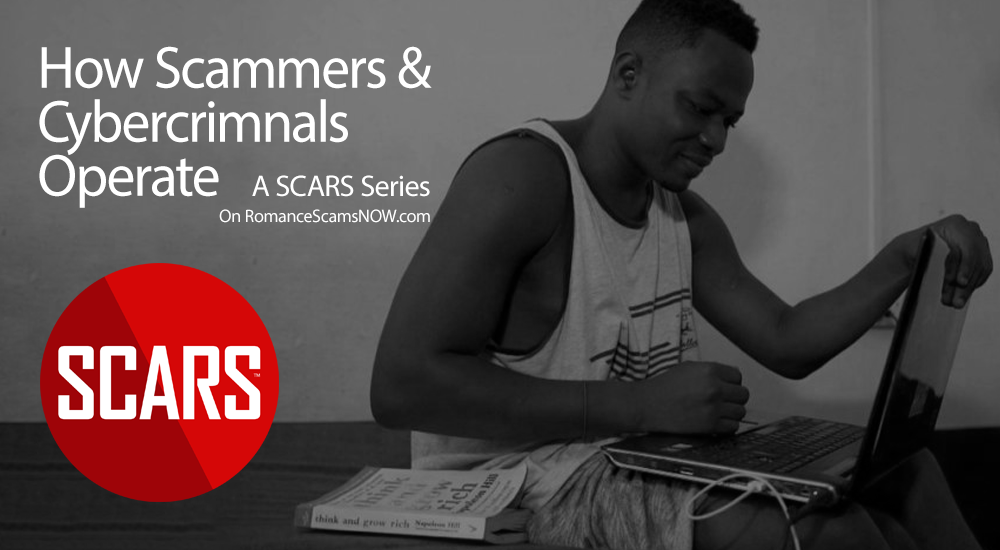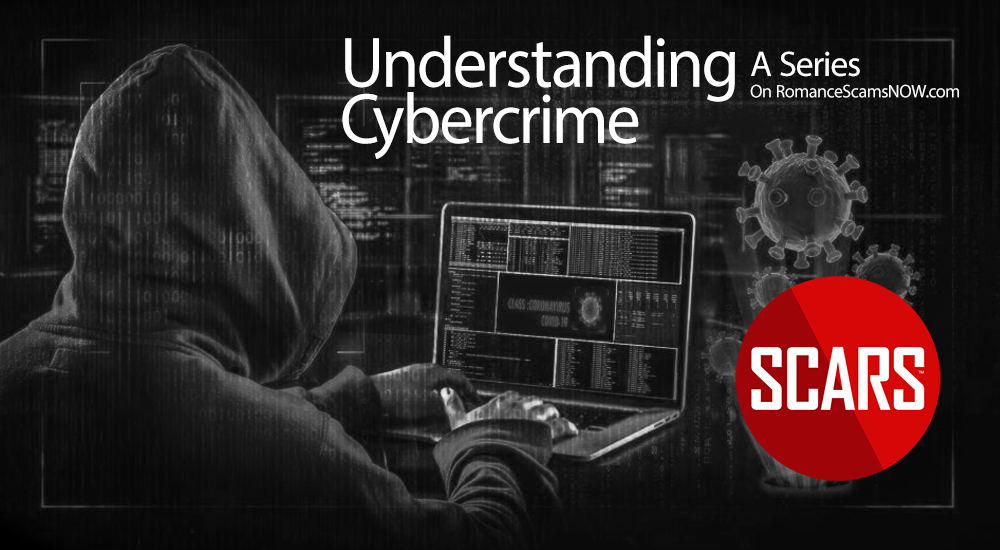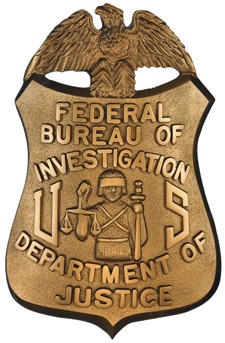
SCARS Institute’s Encyclopedia of Scams™ Published Continuously for 25 Years

Many Times Scam Victims Will Get A Call From Someone Claiming To Be From The FBI
These are often from call center scammers trying to pull a new scam on existing victims or on the general public.
Do Phone Scammers Pretend to be FBI Agents?
Yes, phone scammers often pretend to be FBI agents or other law enforcement officials in order to defraud individuals. This type of scam, known as “imposter Fraud or Government Impersonation Scam,” involves a scammer pretending to be a representative of a legitimate organization, such as the FBI, in order to obtain personal information or money from the victim.
In these scams, the scammer may claim that the victim has committed a crime or that there is a problem with their bank account or is following up on an investigation, and then ask for personal information or payment in order to resolve the issue. They may also threaten the victim with arrest or legal action if they do not cooperate.
It is important to be aware of these types of scams and to remember that the FBI and other law enforcement agencies do not contact individuals over the phone to demand payment or personal information. If you receive a suspicious call from someone claiming to be an FBI agent, do not provide any personal information and hang up immediately. You can report the call to the FBI at https://tips.fbi.gov/.
The FBI Won’t Ask You For Money — That’s A Scam
Unwanted calls are annoying — but when a caller says they’re an FBI agent collecting on a legal judgment entered against you, it’s also scary. No matter how urgent and serious the call sounds, neither the judgment nor the agent is real. Like other impersonation scams, FBI imposters are after your money and personal information, and they might even threaten to arrest you unless you pay immediately. (Again: it’s not real.) Read on to learn to spot the scam.
Scammers will try to get you to act first and think later. If you get a call like this:
- Know that government agencies don’t call and demand money or personal information. Even if you owe money, real government representatives won’t call to threaten to arrest you, freeze your accounts, or take your property.
- Never pay anyone who tells you to pay with gift cards, cryptocurrency, or wire transfers. No government agency, including the FBI, demands payment that way. Anyone who does is a scammer. Always.
- Don’t trust caller ID. Scammers use technology to fake the number they call from. Never call back phone numbers from your caller ID or voicemails.
- Check with the FBI if you think the call or email is real. If you’re worried, contact one of the FBI field offices to check out the call.
How Can You Spot A Fake FBI Agent That Calls You?
There are several ways to spot a fake FBI agent:
- Lack Of Proper Identification: FBI agents are required to carry official identification at all times. If the person claiming to be an agent does not have proper identification, or if the identification appears to be fake or altered, they are likely not a legitimate agent.
- Inability To Provide Details About Their Work: Real FBI agents should be able to provide detailed information about their work and the FBI in general. If the person claiming to be an agent cannot provide specific information or seems unsure about basic details, they may be a fraud.
- Requiring Payment Or Personal Information: The FBI does not require payment or personal information from individuals in exchange for its services. If the person claiming to be an agent asks for payment or personal information, they are likely a fraud.
- Unprofessional Behavior: FBI agents are expected to maintain a professional demeanor at all times. If the person claiming to be an agent is rude, aggressive, or disrespectful, they may not be a legitimate agent.
- Strong Foreign Accent: FBI agents are very well trained and educated. They speak professionally and will be clearly understandable. If someone speaks with a thick accent and uses unfamiliar jargon or slang they are not an FBI agent.
If you are ever in doubt about the authenticity of an FBI agent, you can contact your local FBI field office to verify their identity. You can also report any suspicious activity to the FBI at https://tips.fbi.gov/.
TIPS:
- Call the local field office and ask to be transferred to them.
- If they’re telling you they are an agent, ask them for their work email address as you have a police report you’d like to email them. If it doesn’t end in fbi.gov, there is your answer. No FBI agent uses Gmail or anything other than FBI.gov
How to Tell if an FBI Badge Is Real
Special agents of the Federal Bureau of Investigation (FBI) carry official badges that identify them as working for the organization.
However, there are counterfeit FBI badges that look authentic and are easily available for purchase online. Websites like Amazon have a policy against these counterfeit items, but they continue to flood the internet. With a fake badge and identification card, someone can impersonate an FBI agent and carry out crimes including home invasion robberies, child abductions or terrorist acts. Knowing what to look for in an authentic FBI badge can make all the difference in the safety and security of you and your family.
Impersonating a federal agent to take advantage of or otherwise deceive someone is a specific federal crime. If convicted, the person doing so can receive a fine and up to three years in prison.
TIP:
- Ask the person on the phone to text or message you a photo of their badge and ID card. A real agent would not do that, since it violates federal law.
- Ask them for their badge number. Actually, they will have an ID Number. It will be on the FBI ID card. Having this will make it easier to call the local FBI field office and ask to speak to that Special Agent. Contact one of the FBI field offices to check out the call. If they say they do not have such a number it is a scammer.
- Ask them for their “military rank” – FBI agents do not have one, but a scammer will not know that.
If they show you a badge in person or in a photo:
If someone claiming to be an FBI agent flashes a badge, get a closer look at it. A real FBI agent won’t hand you the badge outright, but will allow you to view it from a slight distance. If you are in your home, make sure to look at the badge through a window or peephole and do not open the door until you are certain you are talking to a real FBI agent.
Remember, it is against federal law to photograph or duplicate federal ID cards (this includes the military too.)
Real Badge Small Details
We include this just for your curiosity!
The details of the agent’s badge:
- The FBI Badge will come in a small billfold with the agent’s identification card.
- An authentic FBI badge is small in size and gold in color.
- The badge should read “Federal Bureau of Investigation” in full at the top. If it is abbreviated to read “FBI,” the badge is a fake.
- Also, if the gold looks chipped or dull, chances are it is made of cheaper materials than the organization’s official badge which means it is likely fraudulent.
- Everything on the badge should be embossed (pressed in), but not engraved.
- The badge should have a bald eagle at the top with a blindfolded Lady Justice directly underneath and at the middle of the badge holding a scale and torch. She should be flanked by the letters “U” and “S” on either side.
- At the bottom of the badge, the words “Department of Justice” should appear.
Real I.D. Card Small Details
Accompanying the badge will be the agent’s identification card. It will contain the agent’s name, badge number and photo. Make sure the photo matches the face of the agent who is holding it.
Fraudulent cards can look pretty close to the real thing. The best way to ensure an FBI card and badge are legitimate is to contact an FBI field office and ask for verification of the agent’s badge number and identity.
To locate an FBI field office near you, consult an online directory on www.FBI.gov or visit the FBI’s website. If the FBI field office can’t identify the agent with the information you’ve given, make sure to call 911 and report the incident immediately to your local police.
Some Basic FAQ Facts That Every FBI Agent Would Know
When was the FBI founded?
On July 26, 1908, Attorney General Charles J. Bonaparte appointed an unnamed force of special agents to be the investigative force of the Department of Justice. The FBI evolved from this small group.
How is the FBI organized?
The FBI is headquartered in Washington, D.C. The offices and divisions at FBI Headquarters provide direction and support to 56 field offices in big cities, more than 350 smaller offices known as resident agencies, several specialized field installations, and more than 60 liaison offices in other countries known as legal attachés.
How many people work for the FBI?
The FBI employs approximately 35,000 people, including special agents and support professionals such as intelligence analysts, language specialists, scientists, and information technology specialists.
Is the FBI a type of national police force?
The public may refer to the FBI as a national police force for the United States, but it is not. Scammers would not know that.
The FBI is a national security organization that works closely with many partners around the country and across the globe to address the most serious security threats facing the nation. We are one of many federal agencies with law enforcement responsibilities.
Summary
This should give you enough information to verify if an FBI Agent is real or a scammer!
Stay safe out there!
-/ 30 /-
What do you think about this?
Please share your thoughts in a comment below!
Table of Contents
- How To Spot A Fake FBI Agent That May Call You Or Appear In Person!
- Many Times Scam Victims Will Get A Call From Someone Claiming To Be From The FBI
- Do Phone Scammers Pretend to be FBI Agents?
- The FBI Won’t Ask You For Money — That’s A Scam
- How Can You Spot A Fake FBI Agent That Calls You?
- How to Tell if an FBI Badge Is Real
- Some Basic FAQ Facts That Every FBI Agent Would Know
- Summary
LEAVE A COMMENT?
Recent Comments
On Other Articles
- Arwyn Lautenschlager on Love Bombing And How Romance Scam Victims Are Forced To Feel: “I was love bombed to the point that I would do just about anything for the scammer(s). I was told…” Feb 11, 14:24
- on Dani Daniels (Kira Lee Orsag): Another Scammer’s Favorite: “You provide a valuable service! I wish more people knew about it!” Feb 10, 15:05
- on Danielle Delaunay/Danielle Genevieve – Stolen Identity/Stolen Photos – Impersonation Victim UPDATED 2024: “We highly recommend that you simply turn away form the scam and scammers, and focus on the development of a…” Feb 4, 19:47
- on The Art Of Deception: The Fundamental Principals Of Successful Deceptions – 2024: “I experienced many of the deceptive tactics that romance scammers use. I was told various stories of hardship and why…” Feb 4, 15:27
- on Danielle Delaunay/Danielle Genevieve – Stolen Identity/Stolen Photos – Impersonation Victim UPDATED 2024: “Yes, I’m in that exact situation also. “Danielle” has seriously scammed me for 3 years now. “She” (he) doesn’t know…” Feb 4, 14:58
- on An Essay on Justice and Money Recovery – 2026: “you are so right I accidentally clicked on online justice I signed an agreement for 12k upfront but cd only…” Feb 3, 08:16
- on The SCARS Institute Top 50 Celebrity Impersonation Scams – 2025: “Quora has had visits from scammers pretending to be Keanu Reeves and Paul McCartney in 2025 and 2026.” Jan 27, 17:45
- on Scam Victims Should Limit Their Exposure To Scam News & Scammer Photos: “I used to look at scammers photos all the time; however, I don’t feel the need to do it anymore.…” Jan 26, 23:19
- on After A Scam, No One Can Tell You How You Will React: “This article was very informative, my scams happened 5 years ago; however, l do remember several of those emotions and/or…” Jan 23, 17:17
- on Situational Awareness and How Trauma Makes Scam Victims Less Safe – 2024: “I need to be more observant and I am practicing situational awareness. I’m saving this article to remind me of…” Jan 21, 22:55
ARTICLE META
Important Information for New Scam Victims
- Please visit www.ScamVictimsSupport.org – a SCARS Website for New Scam Victims & Sextortion Victims
- Enroll in FREE SCARS Scam Survivor’s School now at www.SCARSeducation.org
- Please visit www.ScamPsychology.org – to more fully understand the psychological concepts involved in scams and scam victim recovery
If you are looking for local trauma counselors please visit counseling.AgainstScams.org or join SCARS for our counseling/therapy benefit: membership.AgainstScams.org
If you need to speak with someone now, you can dial 988 or find phone numbers for crisis hotlines all around the world here: www.opencounseling.com/suicide-hotlines
A Note About Labeling!
We often use the term ‘scam victim’ in our articles, but this is a convenience to help those searching for information in search engines like Google. It is just a convenience and has no deeper meaning. If you have come through such an experience, YOU are a Survivor! It was not your fault. You are not alone! Axios!
A Question of Trust
At the SCARS Institute, we invite you to do your own research on the topics we speak about and publish, Our team investigates the subject being discussed, especially when it comes to understanding the scam victims-survivors experience. You can do Google searches but in many cases, you will have to wade through scientific papers and studies. However, remember that biases and perspectives matter and influence the outcome. Regardless, we encourage you to explore these topics as thoroughly as you can for your own awareness.
Statement About Victim Blaming
SCARS Institute articles examine different aspects of the scam victim experience, as well as those who may have been secondary victims. This work focuses on understanding victimization through the science of victimology, including common psychological and behavioral responses. The purpose is to help victims and survivors understand why these crimes occurred, reduce shame and self-blame, strengthen recovery programs and victim opportunities, and lower the risk of future victimization.
At times, these discussions may sound uncomfortable, overwhelming, or may be mistaken for blame. They are not. Scam victims are never blamed. Our goal is to explain the mechanisms of deception and the human responses that scammers exploit, and the processes that occur after the scam ends, so victims can better understand what happened to them and why it felt convincing at the time, and what the path looks like going forward.
Articles that address the psychology, neurology, physiology, and other characteristics of scams and the victim experience recognize that all people share cognitive and emotional traits that can be manipulated under the right conditions. These characteristics are not flaws. They are normal human functions that criminals deliberately exploit. Victims typically have little awareness of these mechanisms while a scam is unfolding and a very limited ability to control them. Awareness often comes only after the harm has occurred.
By explaining these processes, these articles help victims make sense of their experiences, understand common post-scam reactions, and identify ways to protect themselves moving forward. This knowledge supports recovery by replacing confusion and self-blame with clarity, context, and self-compassion.
Additional educational material on these topics is available at ScamPsychology.org – ScamsNOW.com and other SCARS Institute websites.
Psychology Disclaimer:
All articles about psychology and the human brain on this website are for information & education only
The information provided in this article is intended for educational and self-help purposes only and should not be construed as a substitute for professional therapy or counseling.
While any self-help techniques outlined herein may be beneficial for scam victims seeking to recover from their experience and move towards recovery, it is important to consult with a qualified mental health professional before initiating any course of action. Each individual’s experience and needs are unique, and what works for one person may not be suitable for another.
Additionally, any approach may not be appropriate for individuals with certain pre-existing mental health conditions or trauma histories. It is advisable to seek guidance from a licensed therapist or counselor who can provide personalized support, guidance, and treatment tailored to your specific needs.
If you are experiencing significant distress or emotional difficulties related to a scam or other traumatic event, please consult your doctor or mental health provider for appropriate care and support.
Also read our SCARS Institute Statement about Professional Care for Scam Victims – click here to go to our ScamsNOW.com website.

















Thank you for your comment. You may receive an email to follow up. We never share your data with marketers.